ADSactly Culture - The Archetypal Hero or the Warrior King
We can be heroes just for one day
We can be us just for one day
As I prepare to write this post, these words float through my mind unbidden. But what are heroes? Do they swim like dolphins, as David Bowie suggested or are they not like that at all? Who are the people we – as humans – have looked up to for centuries? You might be tempted to say there is not much to link heroes, perhaps a dash of bravery, a pinch of handsome, but actually, the image of the hero has not changed that much at all and I find that humanity has been admiring basically the same person for hundreds of years. And who is that person, I hear you ask?
Why, J.R.R. Tolkien's Aragorn, of course!
After all, he is brave, noble, handsome, adventurous, wise and kind. A fearless fighter and a just ruler, both things that mankind has long dreamt of, though it hasn't seen much of either. It seems fascinating to think, that as they dealt with tyrants, unfair laws and defeat in war people consoled themselves with visions of heroes and tales of adventure, of good versus evil, of the one who would step forth and defeat the darkness forever.
Aragorn, son of Arathorn, but it wasn't always him. After all, Tolkien only wrote the Lord of The Rings in the 20th century, not long at all, is it? And what did humanity dream of before then? Well, as it turns out, the character of valiant Aragorn echoed two other great heroic figures, from the long-ago past.
1. Sigurd the Volsung
This Norse folk tale is truly an astonishing one. Sigurd's story begins, actually, with the wedding feast of his uncle, Signy, if you would believe it. Signy and his brother, Sigmund (Sigurd's fahter) were the children of Volsung and descendants of Odin himself. During Signy's wedding feast, Odin appears and plunges a sword into the trunk of an oak tree, saying
"Whoever draws this sword from this oak will have the sword as my gift to him, and will find that he never had a better friend in time of need."
Remind you of anything?
Of course, many try to pull the sword out of the tree, but only Sigmund succeeds. During his reign as king, Sigmund is then forced to fight an invading army and he meets Odin on the battlefield, where the great all-father tells him that his rule has come to an end, his time is over and proceeds to shatter his sword.
During the war, Sigmund is wounded and eventually dies, but not before saving the pieces of his broken sword for his son, Sigurd.
As with any hero, Sigurd must first go on some quests, designed by his tutor Regin. First, he is sent to find himself a horse, which he does, with Odin's help. And then, he is sent to kill the dragon Fafnir. His father's great sword is reforged and the hero takes it with him and slays the dragon, naturally.
His tutor then instructs him to roast the dragon's heart, which Sigurd does. But in doing so, a drop of dragon blood falls on his finger, burning him and he sticks the burned finger into his mouth, to cool it. Immediately, he is able to understand the language of birds and listening, he realizes Regin is tricking him and that he wants to eat the dragon heart in order to become the wisest of all. Angered, Sigurd eats the heart himself and then goes on to kill his tutor, stealing off of him a cursed golden ring (that belonged to the dwarf Andvari and that is very probably the inspiration behind Tolkien's Ring of Power).
Having done this, he sets out to awaken the sleeping Valkyrie Brynhild. He swears his love to her, vowing to marry her and gifting her the ring, but then he leaves for war. He arrives at the Niblung court, where he is bewitched to fall in love with another, Gudrun, and he marries her instead. Still under spell, he magically disguises himself as Gudrun's brother and rides out to save Brynhild (his true love). The Valkyrie, foretold to marry whoever saves her from the circle of fire where she resides, marries the brother but then discovering the betrayal, she urges him to kill Sigurd, which he does. Filled with remorse, Brynhild kills herself and the two lovers are burned together on a single funeral pyre.
Complicated or what?
2. King Arthur
I'm sure that anyone who's familiar with the Arthurian myth has already noticed many similarities with the tale of Sigurd, although Arthur's story is tamer, by quite a bit. Here, the sword is not stuck in a tree, but famously in a stone. Arthur, who is the rightful heir to the throne, but is brought up in a different home, is the only one who manages to pull out the sword, and thus is proven to be the one true ruler.
He heroically defends Britain against the invading Saxons and together with his knights of the Round Table, he does many chivalrous deeds, saves damsels, etc. He too has a great sword – Excalibur - with which he kills many worthy adversaries. He too has a beautiful lady love and he too must first redeem his kingdom before he can marry her. And here too, there is the element of evil magic, portrayed by Arthur's sister, Morgan le Fay.
Sadly, the peace established by Arthur is broken by his treacherous nephew, Mordred, and civil war breaks out. In the final battle of the war, both Arthur and Mordred are mortally wounded. The good king is placed in a boat which floats downriver, taking him to the isle of Avalon, where his wounds are healed by three strange maidens.
It is said that Arthur isn't dead, merely waiting – along with his knights – under some rock or other such secretive place to ride out and save the country again.
You will have noticed I haven't talked quite so much about Arthur and his legend, mainly because it's more widely known already.
3. Aragorn
Finally, I'd like to point out a few interesting similarities between the fictional King of Gondor and these two legends. First, all these three heores are rightful rulers who are raised far from home. Sigurd in Denmark, Arthur by a peasant (some stories say), and Aragorn at Rivendell. All three must perform feats of great strength and they must first win battles before they can reclaim their thrones and with them, their lady love (Sigurd his Brynhild, Arthur his Guinevere and Aragorn his Arwen). Like with Sigurd, Aragorn too wields the sword that was broken but was made again, only in this story, it belonged to his ancestor, Isildur, not to his father.
Apparently, Tolkien was far more interested in the early Germanic culture of the fifth century (adapting many elements into his own tales).
As David Day, in his The Heroes of Tolkien, so aptly puts it,
Sigurd the Volsung warrior is a wild warrior who would have been out of place at Arthur's polite, courtly Round Table. Curiously, although Tolkien's Aragorn is essentially a pagan hero, he is often even more upright and ethically driven than the Christian King Arthur.
There are many fascinating similarities between the three warrior kings and they all speak volumes about the archetypal hero and what humanity tends to admire and look up to, both in the long ago, but also in modern times.
Thank you for reading.
Authored by: @honeydue
Click on the coin to join our Discord Chat

Witness proposal is here:
Go To Steem Witness Page
In the bottom of the page type: adsactly-witness and press vote.

Use small letters and no "@" sign. Or, click here to vote directly!
Thank you!
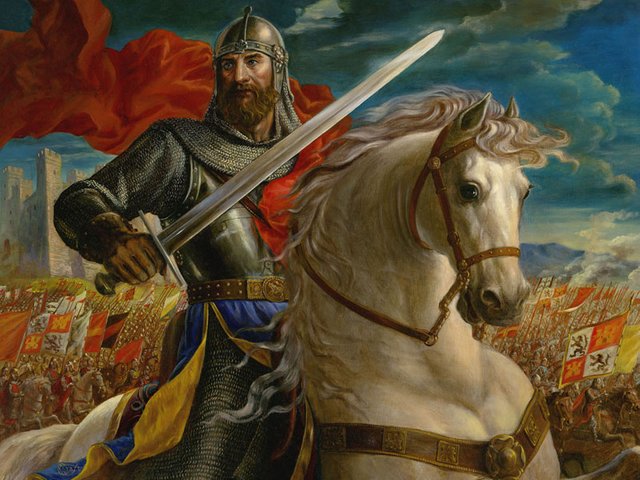
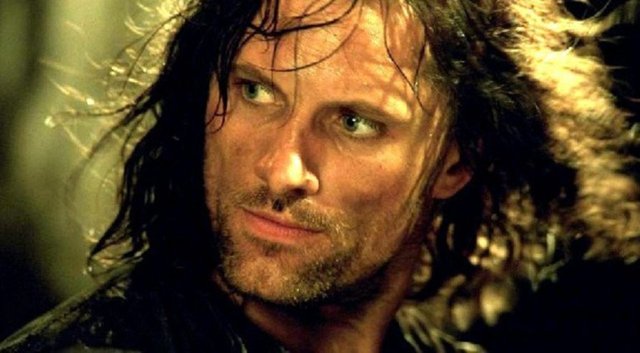
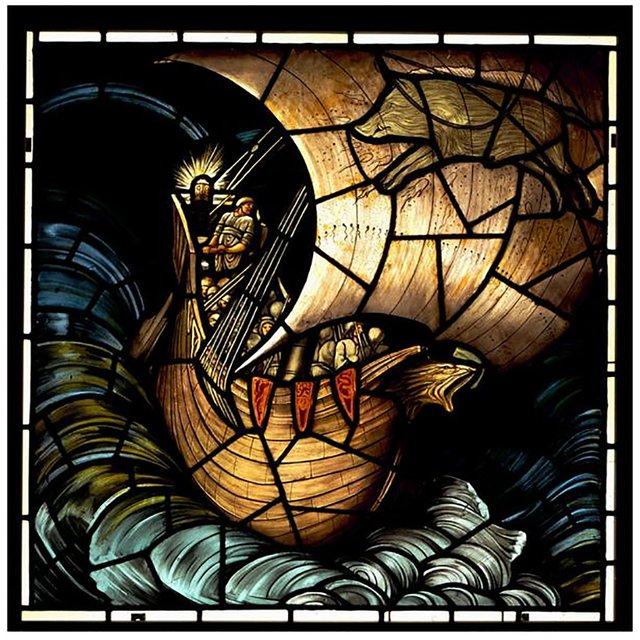
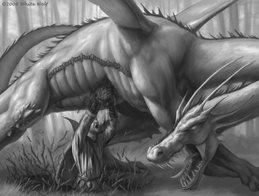
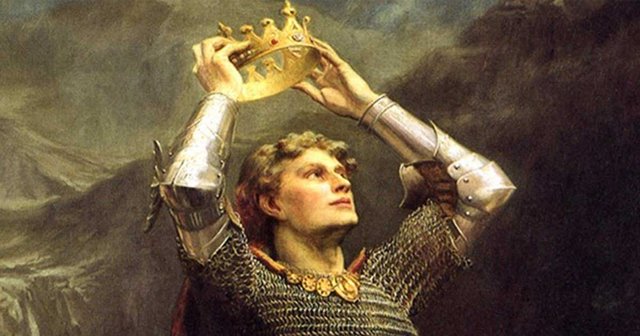
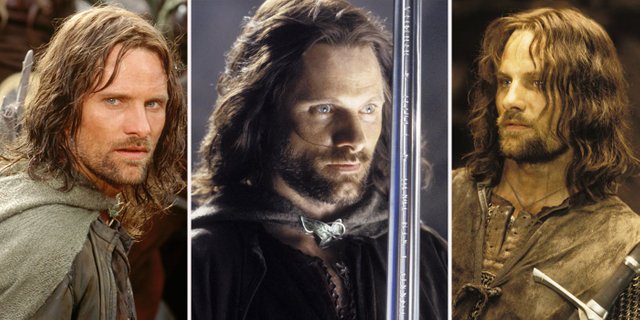
Thank you for this post! This is by far my favorite character in the saga, and one of my favorite characters of all time.
A little summary of all this, Aragorn is one of the best human warriors (if not the best) of the Third Age. He notably fought and chased five Nazgûls to the Windy Mount, successfully led the Battle of Fort le Cor, then took the Path of the Dead and raised the army of the dead fighting for him against the corsairs of Umbar, and finally fought in front of the Black Gate to catch Sauron's attention to allow Frodo to complete his quest.
In addition, Aragorn openly defied Sauron with the help of the palantír of Saruman and introduced him to Andúril and thus showed him the return of a king to the Gondor what Sauron feared.
In addition to being a warrior and unmatched commander, Aragorn is also a great healer, which he proves by caring for Faramir and Éowyn in Minas Thirith and Frodo at Mount Windy.
At the end of the war, he became King of the Reunited Kingdom of Gondor and Arnor, under the name of Elessar Telcontar (Great Elvish Stone in Quenya) and married Arwen Undómiel. From this union will be born Eldarion and several girls.
Thank you, I'm glad you enjoyed this! He's my favorite character, too! He's fascinating, I think.
As always, I was fascinated by your post, @honeydue. I love illustrations and this is one of my favorites. I grew up with stories that valued and extolled the figure of the hero: not just fantasy tales, fairy tales and even our history as a country. Venezuela is the cradle of patriotic heroes who liberated all of America. So every Venezuelan grew up believing he had hero's blood in his veins. While it is true that the figure of the hero is even in the Holy Scriptures and has served to speak of the courage of entire peoples, sometimes I believe that the figure of the hero can do us much harm. Many of the negative actions, such as wars or mass deaths, are done in function of being heroes. I like more the figure of some anti-heroes, it is more human and more accessible, even more credible. I am always delighted to read you. Thank you for sharing such a great text and @adsactly for publishing.
Thank you @nancybriti, I did not know that :) It's interesting to learn how powerful the image of the hero is there. It used to be popular in other countries too (since of course, each country has its own heroes), but they seem to have become forgotten in some, you know what I mean?
Yes, I think anti-heroes are far more appealing as well! They're much more real. I tend to lean towards them, both in reading and writing. And there are just so many great ones out there, right?
The hero is a very interesting subject and of great significance today. I really liked your post, @honeydue. Well presented, with syntheses that give us accurate information and eye-catching illustrations.
Lucid studies have been written on the theme of the hero, including Joseph Campbell's The hero of a thousand faces, in which he deals with precisely that archetypal character of the hero and his behaviour (what he calls the "hero's adventure"). As an archetype, Jung explained, it is part of our collective unconscious, and hence its recurrence throughout history and cultures. Literature and then cinema have taken advantage of it. It is attractive to study it in myths and legends, and to enjoy it in its artistic manifestations.
But beyond that (although I know it's not your purpose in the post, I take this opportunity to give my opinion), it's a figure that generates fascination in people, and they give themselves to it. We see this in many historical examples, even recent ones (for example, the case of Chávez in Venezuela). Seen in the present, I agree with what the Venezuelan poet Rafael Cadenas said: "I don't believe in heroes. When they come to power they become dictators, some even with statues."
Thank you for your post, @honeydue, and @adsactly for spreading it.
Interesting you should mention that. The hero of a thousand faces is on my TBR list, actually. It seems like a truly fascinating read. Yes, it is an archetype that seems to be universally loved, but I agree with the quote, at least for the large majority of such popular heroes. But then, it's a corrupted world, it seems that surviving as a pure, honest hero is a bit difficult in our world today, you know?
Thank you for your very interesting comment! :)
@honeydue, In my opinion heroes are everywhere but many do their works away from the limelight. Stay blessed.
Very true :)
Thank you and have a great time ahead. 🙂
Great Post, inspiring and beautiful story
Very good post and interesting lessons. From the stories that you present we can learn from the characters, both Aragorn, Arthur and Sigurd. The character of these characters can certainly be used as a mirror in our daily lives. That life always requires a heroic spirit. We all have to struggle to achieve dreams. Not easy to give up and always full of optimism. In life we also have to prioritize togetherness so that it can become a solid community.
Thank you @honeydue
Thank you @adsactly
Thank you steemit
Warm regard from Indonesia
Truly said ... Loved the quote
Culture is representative of any country this @adsactly for this lovely post
Posted using Partiko Android